#whew ANYWAY
Text
Treatise on why No, the doctor just giving the narrator of Fight Club (full name) his requested sleep medication or sending him to therapy would not have Fixed Him
Firstly, saying giving him the insomnia meds would’ve fixed him ignores the reason he has insomnia in the first place. He is so deeply upset by his place in society that he literally cannot sleep. Drugging him to sleep would not change that. That, of course, is the easy, quick response.
But with regard to therapy? The biggest flaw is that it ignores a central tenet of the book. Part of what tortures the narrator and drives him to invent Tyler is that his feelings about this collective, systemic issue are constantly reduced to a Just Him thing. His seatmates ask what his company is. He’s the only one upset at the office. He gets weird looks if he says the truth of what he does. People will do anything in their power to pretend he is the issue, as an individual, because it is far scarier to consider the full implications of the systemic issues implied by what he is saying. Everyone treats it as if the issue is him, so he goes insane. He does anything to get someone to say, holy shit, that’s fucked up, what you’re a part of is wrong. In an attempt to feel any sort of vague sympathy and catharsis, he goes to support groups to pretend to be dying, because then at least people don’t habitually blame him for his anguish.
Saying therapy would fix him ignores that his problems are not individual. They are collective. It’s the reason the entire story resonates with people! Something deeply, unignorably wrong with society, where people would rather blame you for bringing it up than try and address it, because it feels impossible. I don’t blame people for this, really, because it IS scary. It’s terrifying to sit and feel like you’ve realized there’s something deeply, deeply wrong, but if you say something, people will get mad at you since it’s so baked into everything around you. Or, even if they agree, it’s easier to deal with the dissonance by pretending it’s individual.
And it’s not like that’s not the purpose therapy and medications largely serve, anyway. Getting into dangerous territory for this website, but ultimately, the reason the narrator was seeking medication was because it’s a bandaid. A very numbing bandaid. For these very large, dissonance causing problems, therapy does very little. Medications do what they always have, and distract you with numbness or side effects. It’s a false solution. He is seeking an individualized false solution because he has been browbeaten with the idea that this is an issue with him alone, when it's plainly clear it's not.
Don't get me wrong. Obviously he has something wrong with him. But it's a product of his situation. It is a fictional exaggeration of a very real occurrence of mental illness provoked by deep unconscionable dissonance and anguish. There is a clear correlation between what happens and his mental state and his job and how isolated he is.
The thing is, even if he were chemically numbed, I do think he would’ve lost it regardless. Many people on meds find they don’t fix things. For reasons I’ll get into, but in this case because even if numbed or distracted, once you’ve learned about deep, far reaching corruption in society, it’s very hard to forget. Especially if, in his case, you literally serve as the acting hand of this particular variety. He’s crawling up the walls.
So why do people say this? Well, it's funny I guess. Maybe the first time or whatever. But also, often, they believe it, to a degree. Maybe they've just been told how effective therapy and meds are for mental illness, they believe wholeheartedly in The Disease Model of Mental Illness, maybe they themselves have engaged with either and have considered it successful. Maybe they or someone they know has been 'saved' by such treatments.
But in all honesty.... What therapy can help with is mentality, it's how you approach problems. For issues on a smaller scale, not meaning they are easier to deal with my any degree, but ones that are not raw and direct from deep awareness of corruption; these are things that can be worked through if you get lucky and get an actually good therapist who helps build up your resiliency. But when your issue is concrete, something large and inescapable? It's useless. At best it can help you develop coping mechanisms, but there is a limit for that. There is a point where that fails. To develop the ability to handle something like this requires intense development of a comfort with ambiguity and dissonance and being isolated and a firm positioning of your purpose and values and and belief in wonder and all the other shit I ramble about. The things that the narrator lacks, which lead him to taking an ineffectual death knell anarchist self-destruction path. Therapy, where the narrator is, full of the knowledge of braces melted to seats and all the people that have to allow this to happen? It fails.
And meds — meds are a fucking scam. We know the working mechanism of basically none of them, the serotonin receptor model was made up and paid its way into prominence. We have very little evidence they're any better than placebo, and they come with genuinely horrific side effects. Maybe you got lucky. I did, on some meds. On others? I don't remember 2018. The pharmaceutical industry is also known for rampant medical ghostwriting, and for creating 'off-label' uses for drugs that have gained too many protests in their original use, then creating a cult of use to then have 'grassroots' campaigns for it to be made a label use (ie, legitimize their ghostwritten articles with guided anecdotes).
The DSM itself is basically a marketing segregation plot. It's an attempt to legitimize the disease model by isolating subgroups of symptoms to propose individualized treatments for subgroups that are not necessarily all that separate. But if the groups exist, you can prescribe more and different medications, no? Not to mention, if you use the disease model, you can propose that these diseases are permanent, or permanent until treated, considered more and more severe to offset and justify the horrific side effects of the medications. Do you know why male birth control doesn't really exist? Same reason. They can justify all the horrible side effects for women, because the other option is pregnancy. For men, it's nothing.
And they're not bothering to invent new drugs without side effects. When they invent new drugs it's just because the last one got too bad of a name, or they can enter a new market. Modern drugs don't work any better than gen1 drugs. They still have horrific side effects. At best, the industry will shit out studies saying the old one was flawed (truth) so they can say this new gen will be better (lie). They're doing it with ssris right now.
Fundamentally, the single proposed benefit of any of these drugs is that they numb you. To whatever is torturing you. It's harder to be depressed if you can't feel it, or if you just can't muster the same outrage. Of course, there is people who find that numbness to be helpful, or worth it. But often, it's stasis. For the people who have problems that can be worked on, it serves as a stopgap to not actually work on said problems. The natural outcome of the disease model is stagnation for those whose need is to develop skills and resiliency. It keeps them medicalized and dependent on the idea that they're diseased and incapable. Profitable. Stuck in the womb.
I’ve been there. It’s easier, to wallow, and resist growth because it’s difficult and painful and unfair and cruel and you can think of five billion reasons to justify your languishing. But don’t listen to anyone who tells you you’re just permanently damaged, no matter how nicely they word it, no identity or novel pathologization, no matter how many benefits they promise, especially if they swear up and down some lovely expensive medications with little solid backing and plentiful off-label usage and side effects that’ll kill you. Some days it feels like they want us all stuck in pods, agoraphobic and addicted to the ads they feed us to isolate the markets for the drugs they’ve trained us to beg them to pump us with. Polarization making it as easy as flashing blue light for go, red like for stop, or vice versa. I worry about the kids, for fucks sake. That’s a bit dark and intense, and I apologize. But I want you (generic) to understand, there is a profit motive. Behind everything. And they do not mean well. They do not care about your mental health or your rights or your personhood or your growth. They care about how they can profit off of you.
For those struggling with immovable, society problems, like the narrator grappling with how his job fits into and is accepted by society while his rejection and horror in the face of it does not, it can work about as well as any other drug addiction. Your mileage may vary. From what I've seen, recovering from being on prozac for a long time can be worse than alcohol. They put kids on this shit. They keep campaigning for more. Off label, again. A pharmaceutical company’s favorite thing to do has to be to spread rumors of someone who knows someone who said an off label use of this drug helps with this little understood condition. Or, in the case of mental illness, questionably defined condition. And like, damn, I know I'm posting on the 'medicalization is my identity' website so no one will like all this and has probably stopped reading by now, but yall should be exposed to at least one person who doubts this stuff. Doesn't just trust it. Because I mean, that's the thing right?
It's so big. What would it mean, for this all to be true? Yeah, everyone says pharmaceutical companies are evil and predatory and ghostwriting, but to think about what that really entails. Coming back to the book, everyone knows the car lobby is huge and puts dangerous vehicles through that kill people. What does it mean if the car companies all hire people to calculate the cost of a recall and the cost of lawsuits? No one wants to think about the scale that means for people allowing it or the systems that have to be geared towards money, not safety like they say. Hell, even Chuck misses the beat and has the narrator threaten his boss with the Department of Transportation. And shit, man, if every company is doing this, you think Transportation doesn't know? That they give a fuck? You're better off mailing all the evidence to the news outlets and hoping they only character assassinate you a little bit as they release the news in a way that says it's all the fault of little workers like you, not the whole system. Something something, David McBride, any whistleblower you feel like, etc.
So I don't blame you, if your reaction is "but but but, that can't be right, people wouldn't do it, they wouldn't allow it" or just an overwhelming feeling of dread that pushes you to deny all of this and avoid thinking about it. Just know, that's in the book. That's all the seatmates on the flights. That's all his fellow officemates. It's easier to pretend, I know.
But think about, how the response fits in with the themes of the book. The story, as a movie too. What drives the narrator’s mental breakdown? How would you handle being in his position? How would you handle being his seatmate? It’s easy to say you’d listen. But have you? Have you had any soul wrenching betrayals of how you thought society worked? How about a betrayal by the thing that promised to be the fix of the first? Can you honestly say you wouldn’t follow that gut instinct, saying follow what everyone says, that person must just be crazy, evil, rude, cruel, whatever it is that means you can set what they said aside?
For a lot of people, they can do that, I guess. Set it aside. Reaching that aforementioned state of managing to cope with the dissonance and ambiguity and despair is very hard. The narrator made the Big Realization, but he couldn’t cope. He self-destructed. Even when people don’t make the big realization consciously, they’re already self-destructing. It’s hard to escape it when it feels easier than continuing anyway. When it feels like the only option,
Would therapy fix the narrator of Fight Club? Would meds fix the narrator of Fight Club? No. He knows too much. All meds will do, by the time he’s in the psych ward, is spiritually neuter him. A silly phrase, but really. Take the wind out of his sails.
Is he fixed if he doesn’t try to blow up town? If he just shuts up and settles in and stops costing money? If he still can’t cope with the things he’s unearthed? Do you see how this is a commentary in a commentary in a commentary?
Fight Club is an absolutely fascinating story because of this. The fact that it addresses the fallout of knowing. The isolation. The hopelessness. The spiral that results from a lack of hope. This is, I think, what resonates most with people, even if not consciously. Going insane because you’ve discovered something you wish you could unknow. It’s a classic horror story. Should our society be lovecraftian evil? I don’t think so.
Do I think changing it will be easy? No. Lord knows a lot exists to push people who make these sorts of Realizations towards feelings of individuality and individualized solutions and denial and other distractions and coping methods. And to prevent people who make One realization from expanding on it and considering further ramifications. Fight Club itself gets into this; the isolation of men being a strict part of the role society shapes for their sex leaves them very vulnerable to death fetishes, in a sense, and generally towards self destructive violence. It helps funnel them away from substantial change and towards ineffectual change. Many things, misogyny, racism, serve to keep people isolated from one another, individualized, angry, and impossible to work with. Market segregation; god knows even appealing on those fronts has become such a classic ploy that companies do it now, the US military frames its plundering that way, etc.
I’ve wandered a bit but ultimately, my point is this: Fight Club is a love letter to the horrors of critical thinking, and the importance of not falling into the trap of self destruction and hopelessness in the face of it. The latter is why Tyler was an anarchoterrorist instead of anything useful. The latter is why it was a death cult. It’s important to work through the horrors of critical thinking so you can do it, and stand on the other side ready to believe in each other. It’s worth it.
#fight club#my writing#uh. sorta#If you disagree with me it's fine btw. That's a given for me but I realize that's not usual for this website#my big desire is always to provoke thought and get people to think about why they think things#not necessarily to get them to agree with me. though obviously like any person i enjoy that#it was nice to type this out#also#aside from the prozac withdrawals mention and my own experience w memory loss (hilariously not even the most major of my beefs with the#medical industry! or even just the mental health industry! but its an easy nonoffensive one so#anyway i kept it nonspecific because if you go specific it becomes easier for people to just go 'oh well its That that's the problem and i#dont need to reflect at all on my drug/condition/issue/etc'#which ppl will anyway ofc. but yk#maybe theyll find it easier to ignore without the horrific specific examples but i want to leave it broad because 1. doing research and#going past the first thing you find and confirmation bias stuff is good 4 u#second. it's better imo to leave it more open for people to try and apply it broadly#whew ANYWAY#a bonafide Rant#i shouldve put#anti psychiatry#in the first few tags. i havent really looked on tumblr to see what the community 4 that is like on here because it feels like an oxymoron#on this website#but im sure it probably exists even if its used for smth else#(please change)
67 notes
·
View notes
Text
What if it tempt
you toward the flood,
my lord—?
The ship’s surgeon told them of the myth two weeks after the first whale was caught and strung up.
Maudlin, delirious with sleeplessness and hysterical with grief, stumbled down the steps into Dudko’s office in search of some relief, and found him there mending a rip in his trousers. Their hands were still raw from rope burn, and they shook as they scanned the little room for the vials they knew Dudko kept for emergencies.
“Oh,” Dudko stood, and reached out towards them. “Wh—Maudlin?”
“I need it,” they rasped, and when Maudlin turned their eyes to him, they were bloodshot and terrified. “I saw you administer it to Franklin—when his leg healed wrong, and you had to break it again.” They only ever spoke Tyvian in this room anymore, and it fell out of their mouth in a rush. “The medicine that knocks people out—please, Dudko, I won’t survive another night—” Maudlin heaved a deep breath and let it out, raw and ragged, before turning to the cabinet and throwing its doors open.
“It won’t—” Dudko put his hand on their shoulder, and was batted violently away, as Maudlin grabbed at random jars. “I don’t have any—”
Brown beakers and metal canisters and clear vials were shoved aside and knocked over, as Maudlin pawed through them, barely reading labels before tossing them aside. Pills were strewn across the table and floor; corks were popped and not replaced as Maudlin sniffed bottles, not sure what they were smelling for. When a slick yellowish liquid spilled down their fingers, they licked it off hoping for some effect, then gagged and retched when the turpentine hit the back of their throat
“Maudlin, stop this!” And Dudko wrapped his thick arm around their chest, pinning Maudlin’s arms to their sides, dragging them away from the cabinet and back toward the cot. Like a sack of potatoes, he threw Maudlin down, and held them there by the shoulders. They didn’t fight, just twitched their tremorous hands in the air, failing to remove the lid from a small glass jar. “And give me that!” Dudko swiped it from their hands, and Maudlin crumpled in on themself. “I only brought so much ink with me! This isn’t part of the standard restock, you know?” And he tucked it in his breast pocket.
When Dudko looked down, Maudlin was curled in a ball, their knees pulled to their chin, their ribs shuddering. Their hands were pressed to their face, their hair in an untidy knot at the back of their neck.
“I can’t—I can’t sleep, Dudko, please—and when I do, he—he—I see him—“ Every breath rattled in Maudlin’s throat. “At night—the liquor—on this fucking boat—” They swallowed hard, and coughed. “It—it won’t work, it—it makes me sick—“
Dudko’s heart, long hardened by the tragedy every whaler knew well, cracked just a bit, and he placed his warm palm on top of Maudlin’s head, and stroked their hair.
“It’s alright, little krill. Hush, now. Breathe, breathe.” Dudko petted them, and rubbed at their shoulder, and shushed them softly, and slowly Maudlin’s gnashing subsided into quiet, keening cries. “I don’t have what you’re looking for. Someone stole it. Franklin, maybe. But the last supply ship had none, so you’re stuck with that Gristoli swill if you…need it.”
Maudlin gasped and wiped at their nose. “I need something, anything. To…to quiet my mind, to…make it stop…”
Dudko sat on the corner of the cot and patted Maudlin’s hip. He chewed on the inside of his lip, and thought for a moment. “I have no drug for you,” he said, and Maudlin’s body shook under his hand. “But I know what happened. We all see it, our first time out. It will get better, I promise you this. It will fade.”
Maudlin was panting, curled so tightly around themself that, in the sickly blue light of the oil lamp, Dudko could count the nobs of their spine through their shirt. He rubbed a hand over his mustache and stared at his ruined cabinet.
“He wears his mask, right? When he visits?” And at Dudko’s words, Maudlin froze under his hand. “But the eyes are blank? Like there’s smoke behind them?”
Maudlin lifted their head, tears and snot dripping down their chin, stray hair plastered to their face. “How…” They rubbed their eyes with their knuckles. “How did you—”
“Listen to me when I tell you this…” Dudko offered them a hand, and helped haul them into a cross-legged seat. “Look at me,” and he grabbed them by their wet chin. “That was not your man, Maudlin.” Immediately, their eyes welled up again, and they tried to turn away, but Dudko held them, one big hand on either side of their face. “Look at me! Every whaler loses someone to the hunt, okay? All of us. And the ghost of that loss visits us, and—”
“He told me to jump…”
“You must—”
“So we could—together—” Maudlin hiccupped.
“Maudlin…” Dudko smoothed their hair again, then let go of their face, and let them fall back onto the cot. Maudlin stared up at the ceiling, tears streaming silently down their cheeks. “It wasn’t him. Just like it wasn’t my mate Eamon who came to me after the fever took him. It’s just…I don’t know.” He sighed, then stood and crossed the room, to a small box he kept stashed under his desk. “Pious folks say it’s the Outsider, but it’s not him either.” He turned the dial on his lamp, and the light in the room grew brighter. “My first captain said it was the ghost of the whales, trying to get back at us. But I think they’re too good for that, don’t you?”
Maudlin was breathing slowly, their jaw slack and their eyes just barely following him around the room. “I want…” Their voice was hoarse. “I want to jump, sometimes.” They licked their lips and blinked at Dudko. “I want to follow him…off the back of the ship…”
“I think, personally…” and Dudko took his tools out of the box and unwrapped the paper he kept around them. “The first whaler who ever died in the trade…he cursed us. All of us.” Then he removed the bottle he had confiscated from Maudlin out of his pocket, and pulled the cork out with his teeth. “Good thing for you, I know how to ward you from such darkness.”
Half-asleep and half-alive, Maudlin turned their head to watch Dudko select a long silver needle from a paper envelope. Then, smiling a little, he pulled the neck of his shirt down his chest, exposing the sparrow that rested there, just below his collarbone. And below it, in curly Morlian script: Eamon.
“It won’t work automatically. You will have to keep being strong. And I won’t promise that it will go away forever, but…it will fade.” Dudko tapped a finger to the bird. “And this never will.”
Maudlin fell asleep that night, despite the pain, listening to Dudko humming Ode of Wynnedown as he carved two crossed anchors into their arm.
2 notes
·
View notes
Text
after a bit of inner thinking i might be ace as well
#hum#idk tho#i think that maybe what i think its 'sexual attraction' its actually just my fear of being alone and not having as many romantic/smexy#experiences as i should compared to other people my age#bcuz if they r there why do they fade away like 10 mins after i have them#LIKE THATS NOT NORMAL ME THINKS??????#whew anyway#wrote a post today#feels gud :]
0 notes
Text
Am i just a salty McLaren fan or is it weird that DTS completely ignored Oscar having a super successful rookie season?
#feels like that should’ve been at least half a storyline?#lando got a bit of love in the one episode but the best rookie in years gets nothing#also total side note#but i got embarrassingly emotional at the end of this season#when it said geunther’s contract wasn’t renewed#which i KNEW#but it still makes me SAD#it’s like they killed off my favorite character#whew anyway#enough of that
1 note
·
View note
Text
as an aroace person who sees other aspec people get frustrated with the lack of nonromantic relationships being represented as anything other than sibling, I grant you: hermit relationships
Grian & Pearl: siblings, actually
Pearl & Scott: platonic
Cleo & Scott: queerplatonic
Jimmy & Tango: romantic
Grian & Scar: sexual but like they turned Complicated pretty fast lets be real
Pearl & Gem: ????)?),?
Etho & Joel: probably a disorder really
Martyn & Ren: theater kids.
#this came to me while brushing my teeth as all good ideas do#is this a good idea#anyway#amarambles#trafficblr#life series#traffic smp#life series smp#life smp#hermitblr#hermitcraft#hermitshipping#grian#zombiecleo#scott smajor#smajor1995#goodtimeswithscar#pearlescentmoon#geminitay#jimmy solidarity#tangotek#ethoslab#smallishbeans#martyn inthelittlewood#inthelittlewood#rendog#whew thats all of em
2K notes
·
View notes
Text
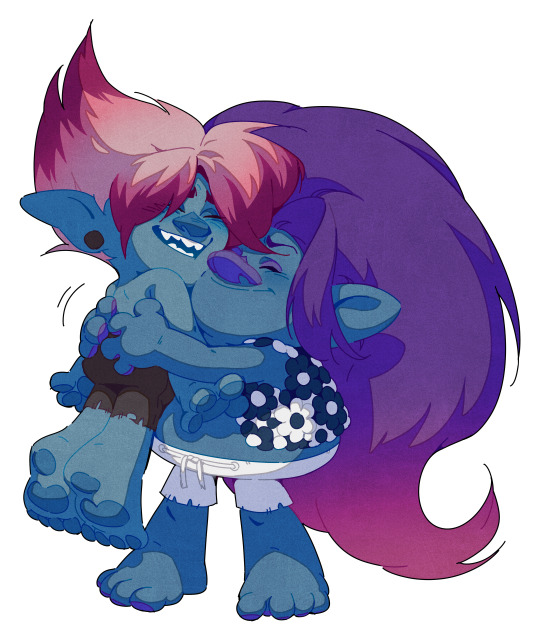
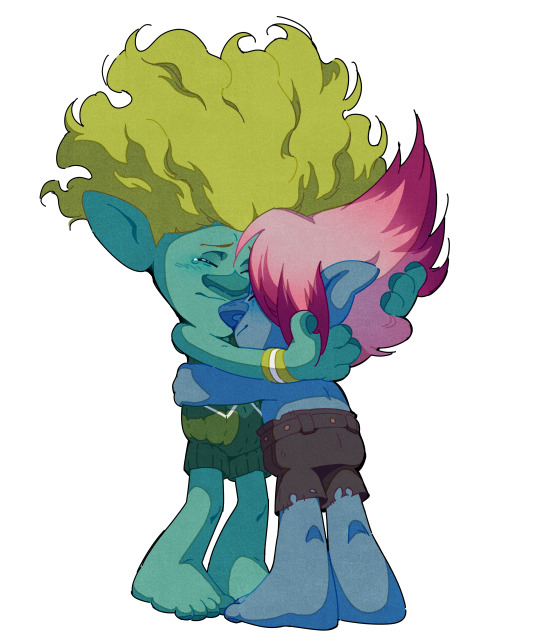


hug time 🌺
#trolls#trolls band together#floyd#bruce#clay#john dory#branch#brozone#? i suppose#sandflakedrew#whEW that's a list of names#anyway.#smanch the branch#be the change u wanna see in the world etc etc. wanted more hug outta the movie so i will feed myself#also got slightly emotional about john dory's color story#as the brother who is wearing all of his other brother's colors...#small weepy
7K notes
·
View notes
Text

care for a Toulousian Miku ? 🌸
#my art#hatsune miku#international miku#miku worldwide#miku fanart#miku in your culture#french miku#I'm so happy I got this done in time for her birthday WHEW#anyway love Toulouse I miss the south sm
1K notes
·
View notes
Text

they did the monster mash!! 😳 🎃it was a graveyard smash!! 🦇👻
#churro art#my art#digital art#fanart#illustration#doodles#what we do in the shadows#wwdits#nadja of antipaxos#laszlo cravensworth#nandor the relentless#guillermo de la cruz#HHHHAAAPPYYY ALMOST AUTUMN!!! AHAHAH#August comes to an end and I start Halloween posting already.. WHEW#can I tell I just adore the last 4 months of the year THIS IS MY ALL STAR RUN BABY!!#ANYWAYSSS I STARTE DTHIS SHOW WATCHIGN HW ITS SOO FUNNY#genuinely cannot watch this before bed because I laugh too much and start getting Not Tired#this was orig a doodle I did in my notebook for uni!#but I finished it on my iPad to relax in between classes :D#I love working in this style..#if I had a dream I would illustrate comía or children’s books like this!!#anyways. neeeewww York citaaay
589 notes
·
View notes
Note
That Kitsch!Gambit is so steamy LORD PLEASE write a Channing!Gambit version. I know you don't write smut but. Just a taste. Please. You'd be doing the Channing girlies a service.



♧ | own sweet time ; ‘24!Gambit
summ. A supply run goes sour. You and Remy pass time in the Void the only way you know how.
pairing. Void!Gambit x f!Void!reader
a/n. A blurb. Allusions to smut but really it's just heavy-petting and a make out. Anyway. Don’t look at ME. You people asked for this!

The Void is vast.
Vast usually means quiet.
Which, really, is a double-edged sword for your situation at the moment. It all depends— but logistics is honestly the last thing you’re caring about in this seedy, rundown 80’s Diner that you and Remy have temporarily camped in for the night after that tragedy of a supply run, no—
Not when you’re purring under his heaty touch, and he’s sweeping you off your feet to corner you against the counter with his eyes half-mast, and that damn smirk across his face.
He always likes to play with his food.
“Foldin’ your cards already, chèr?”
Your hands roam uselessly across the armour over his chest, finding purchase at the thick muscles of his arms caging you in.
“Mh. You’re a cheater,” you volley, dragging him close by his coat and tip-toeing to meet him in a quick there-and-away kiss.
A dimpled smile. “S’only one thing I play dirty at, chèr.”
You roll your eyes, but your huff of laughter betrays you. “You talk too much.”
“That so?” he hums, cutting.
You can’t even answer.
The taunt is enough to have him dipping down, snaking his hand loose around your neck like a collar, and devouring you like his life depended on it. Raw hunger. It sends your world careening; body unravelling. You want to reach out incase you fall apart— you want to be touched and surrounded and kissed.
“Up,” he instructs, voice like roughstone; and when you obliged obediently, let him hike you up around his hips and keep you from falling with nothing but a single arm wrapped around you, he croons out the approval that makes your head swim;
“Attagirl.”
Some strangled sound— a wanton plea, probably— escapes you. It’s hard to miss his smile against your lips; Likes when you preen for him, the smug bastard.
He settles you fluidly on a booth table, and you barely have the time to catch your breath until he’s leaning his tousled-head down again, tilting your chin up with his fingers, and nosing a bruising kiss over your lips and to the tender pulse beneath your jawline.
“Remy,” you manage, half-whined and half-croaked. “Please.”
He shushes you. Three consecutive tuts, almost. Chiding. It stirs something in you.
This— arrangement— has been routine enough for him to know exactly what makes you tick; know what disarms you; lets him have his way. You hardly remember when it all started. Time doesn’t matter in the Void. Somewhere between his suggestive banter, and your wandering gazes, and both of your lingering, purposeful touches— you and he found comfort burying in each other with this make-shift intimacy.
Casual, you remind yourself. This is… casual.
He grazes tongue and teeth against your collar. Canine-sharp.
Christ. The whole Devil thing makes sense, doesn't it?
And Gambit runs hot. Smouldering to the touch— warm and kindling and as searing as brimstone. You wonder, idly, if it has something to do with all the kinetic energy coursing through him; if it’s ever intentional. An exposed livewire that singes and thrums throughout your body as he mouths at the thin skin of your flesh.
“Remy.” You arch, helpless, trying to get impossibly closer to him.
He slides his palms up, rough and excited, working your body firmly where and how he wants you, back down the cold metal of the table.
It’s enough force that you thud the back of your head.
You barely notice it, too distracted with the pressure of him, but Remy does— and then he’s quickly pulling away from a wet kiss at the hollow of your throat.
“Y’alright?” he withdraws, slowing considerably. Irises fade bright fuschia to sea-green. The roughness in his touch quickly melts away. "M’sorry, chèr."
His powers bleed through sometimes whenever he’s kickstarted with adrenaline; tends to give way and have him end up using more force than necessary. His thumb sits at your bottom lip, breath curling with yours as he checks you over with a flickering gaze.
“It's okay,” you murmur, already pulling him forward. (You forget just how much that Cajun accent of his does it for you.) "Didn't hurt me, sweetheart."
He seals you into a talisman of a kiss. Another apology; a promise. Gambit didn’t mean to, chèr, it translates. 'Lemme make it up to you.
Gentleman at heart. Always. You love it about him.
Gambit may have learned how to make himself a hard read from his years being a thieving, gambling, cheat; but Remy’s touch— sleight, dextrous hands borne from mastered legerdemain— never fails to give everything about him away.
Everything devolves into something more tender, now. Like he’s making up for his harshness. You can feel his fingers slide from your jaw and run through your hair to cradle the crown of your head— quiet precaution from hitting it again as he latches onto your mouth.
Subtle awareness; Not only a turn-on, but also sickeningly sweet of him.
Too much, truthfully, for this to be just a casual thing between you both.
Sweeter than whatever had been in the air that day Elektra had sent you both out on a recon that turned sour, and he came away with bruises on his chest so dark he looked like a walking contusion— and you took care of him afterwards in the only way you knew how:
Sitting astride on his lap, and letting him mould you into his blissful distraction; have him forget the pain; disassemble the raw dread in his marrows after such a close call.
He shifts you carefully to the table edge, nudges your knees wide so he can stand bracketed between your legs. The skirting coat he shoulders slowly slips off.
...God. You’re going to leave half-crescents around his biceps by the time he’s done with you.
“Easy, chèr,” he laughs, when you entwine your fingers with his, anticipatory. It's a cigarette-burn of a voice; drowned in hazy, saccharine affection. “Gambit ain’t goin’ nowhere.”
Too sweet, you want to scold him—
But then he’s pressing against you, looming above you like a shadow, and every single thought dissolves into eager pleasure as he curls another hand under your shirt and drags up, up, up.
Too sweet. Sweet, and takin’ his own sweet time.
Laissez les bons temps rouler, or whatever it is he says.
#haha sweetheart because he's sweet. get it. get i—#ANYWAYS.#somebody play casual by chappell roan rn#jk#gambit is a sweet lover nobody can tell me otherwise and if you do go argue with the wall#lbr we know remy lebeau aint no casual lover#WHEW.#this was a challenge to write since I don't usually write this genre#but it was fun!#would love to hear feedback too!#hope i watered your crops you heathens!#gambit#remy lebeau#deadpool & wolverine#deadpool 3#gambit imagine#gambit x you#gambit x reader#gambit x y/n#remy lebeau imagine#remy lebeau x you#remy lebeau x reader#remy lebeau x y/n#xmen#xmen imagine#dp3#WELUCKYFEW#👾 ; marvel#🪷 ; wishing well
388 notes
·
View notes
Text

if you cant get an organic s2 wedding, then store bought is just fine!!!!!!!!
#kinnporsche#kpts#kinn x porsche#i know in my heart that if we had gotten a s2 they would have gotten married there....... i just know it. pond dmed me and told me trust me#anyway!!!!!!#originally i was gonna give them boring western suits but u know. thai traditional wedding attire is so pretty#sorry for any inaccuracies. i tried to look at multiple references but whew#i still wanna draw them on western wedding suits tho
673 notes
·
View notes
Text

hey I redesigned them again
close ups under the cut

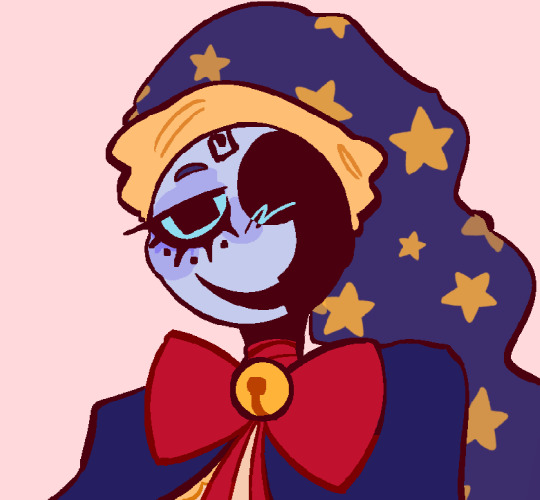
boy why are you so eyelash
#SUN TOOK FOREEEEVER#GOD#first art post of 2024 lesgo#anyways#I Hope this doesn’t flop or else I’ll kill myswlf#sun#moon#fnaf#five nights at freddy's#secruity breach#fnaf security breach#sundrop#moondrop#sunrise#fnaf sun#fnaf moon#sun and moon#daycare attendant#fnaf sb#I think that’s them all whew#not a art tag
787 notes
·
View notes
Photo
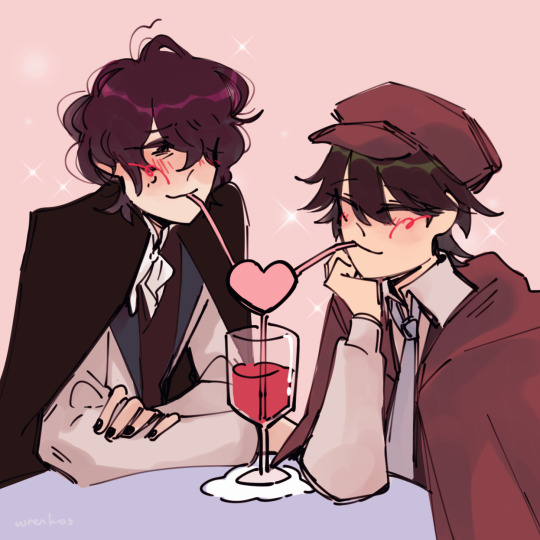
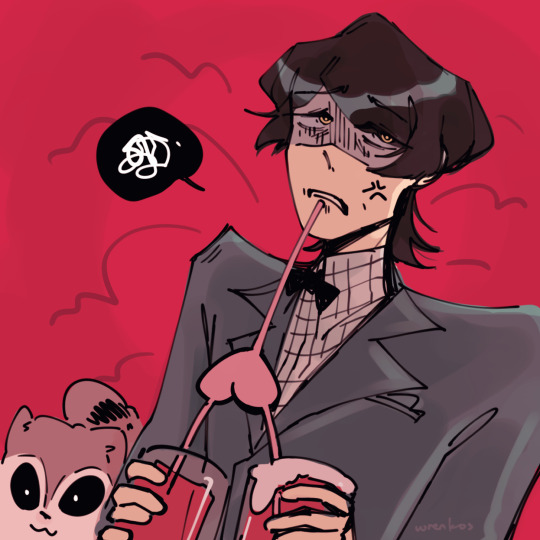
perfect crime trio goes on an outing
#edgar allan poe#ranpo edogawa#mushitaro oguri#ranpoe#mushiranpoe#poe bsd#ranpo bsd#mushitaro bsd#mushitarou oguri#perfect crime trio#bsd#bungo stray dogs#bungou stray dogs#WHEW i think thats all of them wait no hold on#karl bsd#NOT TO FORGET HIM!#havent drawn art for fandom in soo longgg then i fell into a like#brainrot hell over mushitaro reactivating over seeing him animated LOL#he is my faveee. anyway yah#valentines day#my art
6K notes
·
View notes
Text
okay i think i've got it. instead of running from his role, aang feels like he's failing at his role. no decision he makes is the right decision. the decision to take a break on appa meant that he wasn't there to help the air nomads. the decision to research on kyoshi island brought the fire nation there. the decision to be close to his friends got them stuck in the spirit world. he looks at the ruins of the northern water tribe and says "i did this." everything he does feels like a failure bc of the first failure. so aang has to let go of his past failures so he can start succeeding in the future. his journey isn't learning how to stand his ground, it's how to let go.
#not sure i like this more than the og...but at least i finally understand the angle fully#anyway WHEW they were not joking abt rewriting things it's kinda throwing me for a loop#but i KNEW that they were not leaving me this breadcrumb trail of aang's fear of his power for nothing#avatar the last airbender#netflix atla#live action atla#aang#natla#natla spoilers#🪸
522 notes
·
View notes
Photo
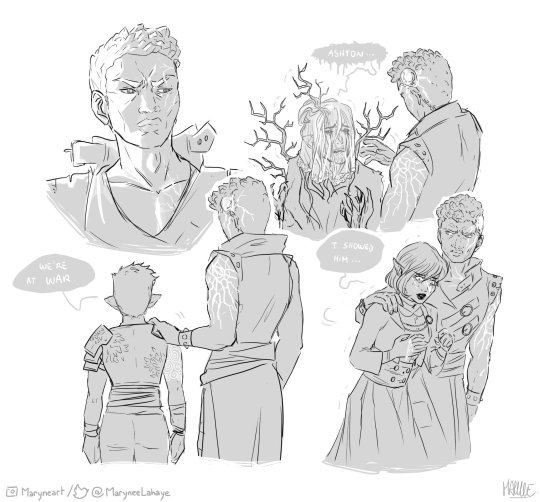
silent caretaker
#Critical Role#critical role fanart#critical role art#Ashton Greymoore#whew#they truly are... their rock#:)#i'll make that shit joke everywhere#ANYWAY i love drawing him#i was too tired to color tho#maryneart
2K notes
·
View notes
Text
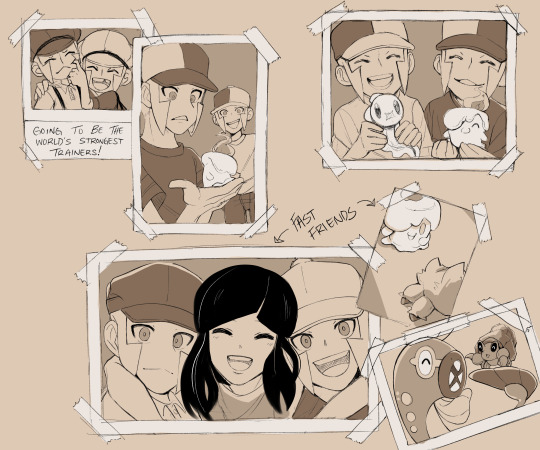


Emmet month - Day 4: Memories
though Ingo may be gone, he'll never be forgotten
#submas#subway bosses#subway boss ingo#subway boss emmet#subway boss nobori#subway boss kudari#gym leader elesa#nimbasa trio#monthofemmet#my art#whew i am 4 days late ;;#anyway i let myself keep this one much MUCH less refined (as hard as it was to do that slkgj)#also bringing back the kid submas designs i did a looooong time ago#like them as young trainers that one#anyway of course i choose to do something sad with this one hehe#emmet sitting all alone in his apartment looking through old photo albums ;-;#gettin' tear stains all over the pages
1K notes
·
View notes
Text









MASTERS OF THE AIR - in every episode: the sky
#masters of the air#mota#motaedit#mastersoftheairedit#basilcreations#motaiee#ep 6 has very very little air in it#but something about captivity versus open air... whew#anyway pls just let me gif 100 more aerial shots like these#flashing gif
369 notes
·
View notes